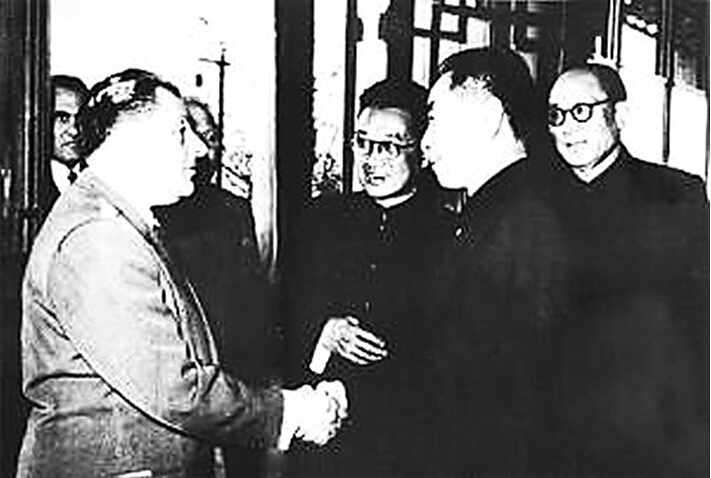Chinese code breakers contribute to WWII victory
- By Liu Qiang
 0 Comment(s)
0 Comment(s) Print
Print E-mail China.org.cn, August 21, 2015
E-mail China.org.cn, August 21, 2015
"It is a little-known fact that forces resisting the Japanese war effort under the authority of the Communist Party of China (CPC) were one of the main means of obtaining sensitive information for the American military," said Lv Tonglin, professor of the School of Humanities and director of the World Anti-fascist War Research Center, at Shanghai Jiao Tong University.
Professor Lv and her team studied over 40,000 declassified documents which have been preserved in America's National Archives and Records Administration for over 70 years. In 1944, America sent an army observation group to Yan'an and other anti-Japanese base areas established by Chinese communists, and they passed on those documents to America independently.
According to their study, the CPC disclosed its military activities and deciphered messages from the Japanese army to American observers during the latter part of the anti-Japanese war. The CPC assisted American military experts in establishing advanced meteorological stations and radio networks in Yan'an and other base areas to guarantee safer flights for American pilots and assure the success of American bombing raids in Japanese territory. The CPC also helped arrange for American experts to get firsthand information concerning the war in the Shaanxi-Gansu-Ningxia Border Region and other base areas in northern China and northwestern parts of Shanxi.
Lv said the intelligence cooperations between the CPC and the Americans were "beyond the expectation of American intelligence agencies". "The base areas under the authority of the CPC are the most important sources of military intelligence in the Pacific region," said Major Lowry, member of the American observation group.
After visiting Yan'an, American diplomats such as John Service and John P. Davies advocated that America should, for its own benefit, try its best to maintain a good relationship with Chinese communists.
"If we have a clearer picture of these historical facts, it will represent great value and meaning in China's diplomatic efforts to further encourage international relations," Lv said.
CPC's role in Operation Barbarossa
Just a week before Germany launched Operation Barbarossa, the code name for Hitler's invasion of the Soviet Union on June 22, 1941, the CPC notified Stalin of the intelligence.
| Yan Baohang (first on right) accompanies Chinese Premier Zhou Enlai to meet foreign guests in 1955. [File photo] |
Yan Baohang, a senior advisor to the Kuomintang government and also a communist agent, learned by accident in May of 1941 that Germany planned to invade the Soviet Union around June 20th that year. He reported this to Zhou Enlai who kept a clandestine relationship with him. On June 16, the CPC passed the information to Moscow.
Unfortunately, Stalin was in doubt about the CPC's intelligence gathering capacity and ignored it. Not until June 21 did Moscow learn form a captured German soldier that Germany was to launch an attack on the Soviet Union the following day.
Eight days after Germany went to war with the Soviet Union, Stalin sent a telegram of thanks to the CPC Central Committee. "Thank you for providing exact information about the German attack. The intelligence assured the Soviet Union of making timely preparations," read the telegram.






